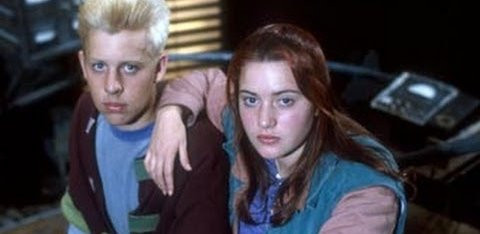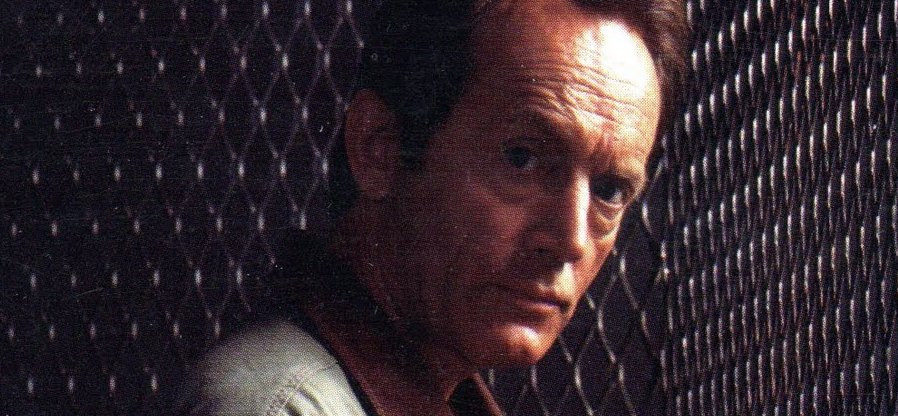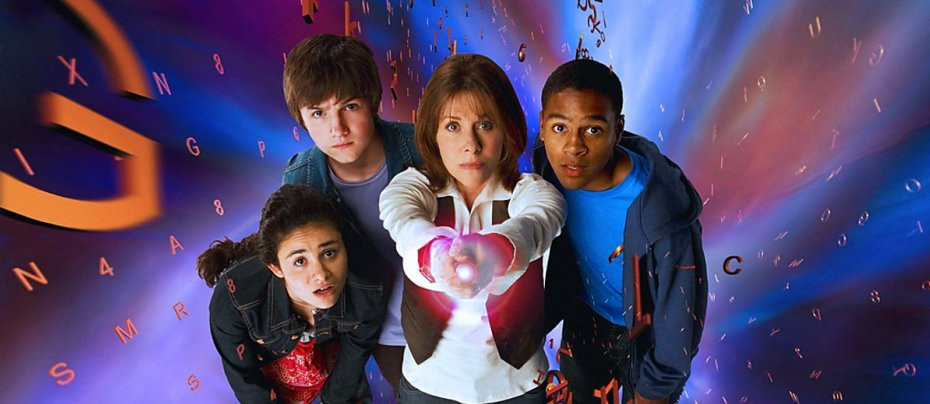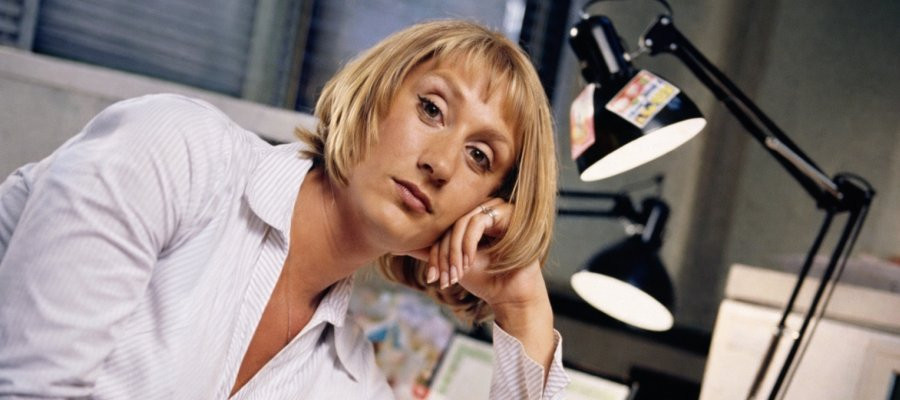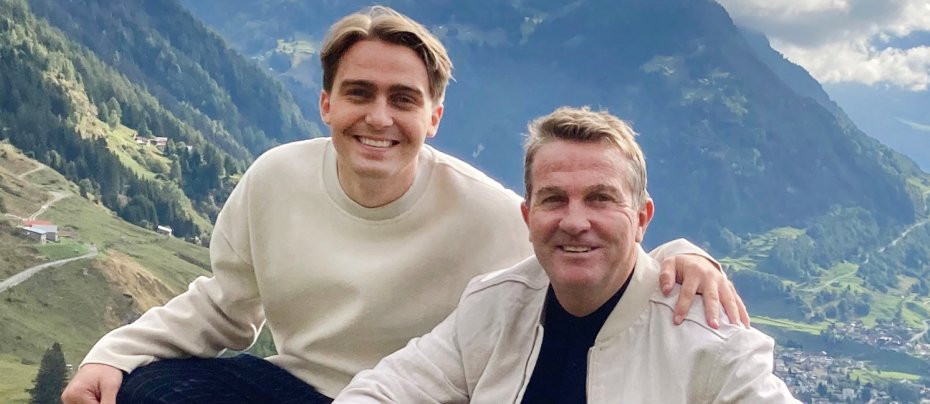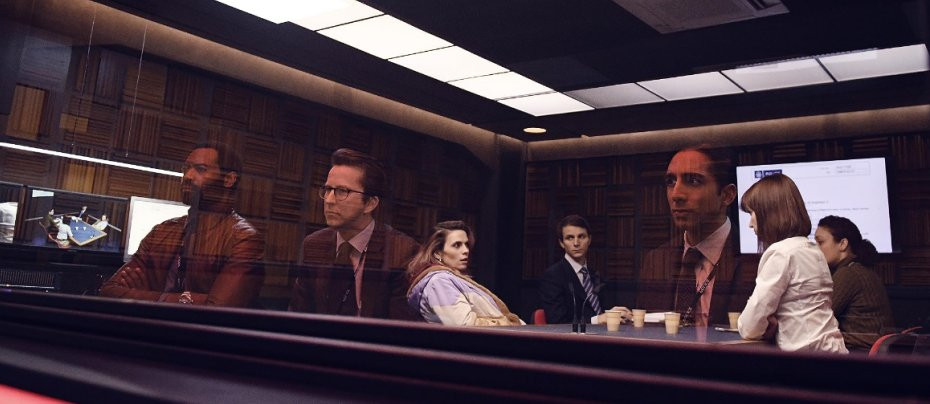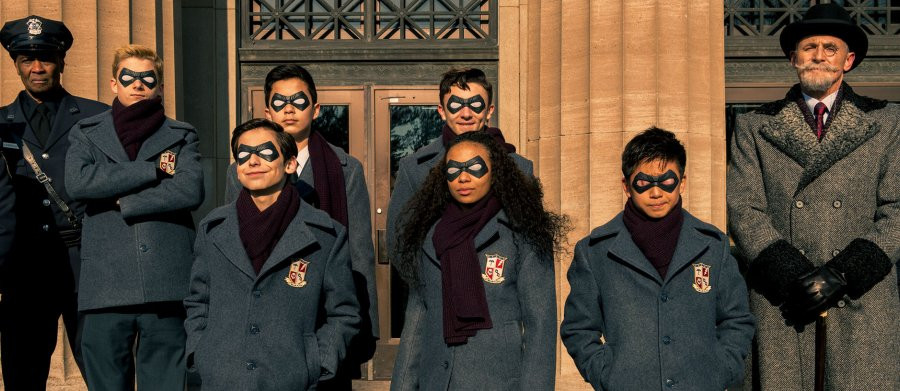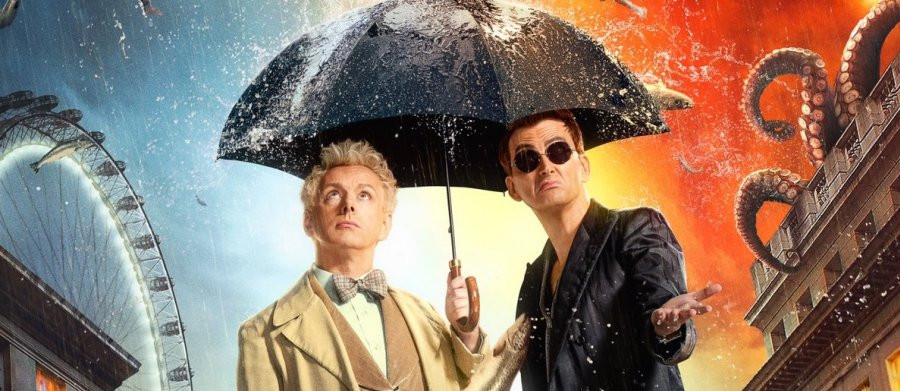
Good Omens
2019 - United KingdomThere's something about British fantasy writers that leads them to see the end of the world as a source of comedy.
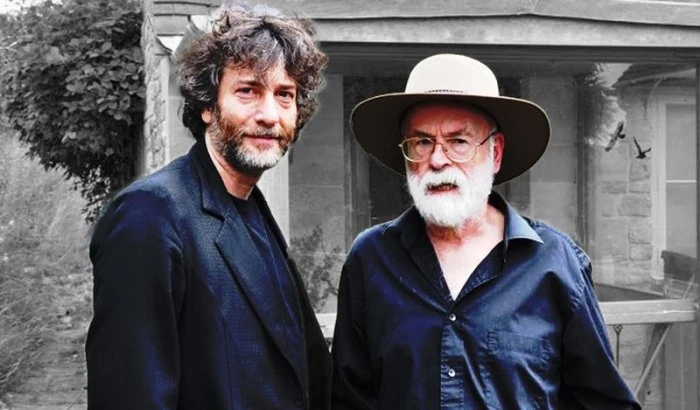
Good Omens was the sole literary collaboration between two the UK's most popular fantasy authors. Published in 1990, it was written by Terry Pratchett in between several novels of his best selling Discworld series, and Neil Gaiman while he was beginning his Sandman comics masterpiece with Vertigo. A sustained parody of 1976 classic The Omen, the novel charts the final days before the Apocalypse and the final war between the forces of Heaven and Hell, beginning with a mix-up at a maternity hospital which sees the wrong family take home the Antichrist.
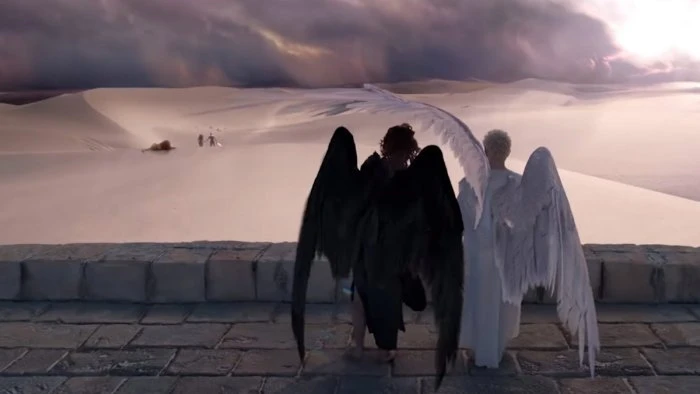
The novel was a bestseller, winning the World Fantasy Award for Best Novel in 1991. An adaptation for either the big or small screen seemed inevitable, but after years in development hell, plans for a cinematic version fell apart. A radio adaptation was broadcast by the BBC in late 2014, reigniting interest in the project. Pratchett's daughter Rhianna had begun her own production company, Narrativia, in 2012, and a televisual adaptation of Good Omens had been a priority project since the beginning. In 2015, Terry Pratchett sadly passed away, but not before writing to Gaiman requesting his co-author work on adapting the novel for television himself. Left with what was essentially a deathbed promise, Gaiman worked with Narrativia, Amazon and the BBC to produce a six-part TV miniseries of the novel.

While the basic storyline of the novel remains intact, the miniseries takes a few diversions along the way, and it's not as if it took a particularly direct route in the first place. This is only natural; a TV series has a very different shape to a novel, and Gaiman is experienced in writing for both formats. Notably, though, one element of the novel, already one of its most important aspects, is pushed very much to the fore of the TV version, and that is the friendship between the angel Aziraphale and the demon Crowley. Aziraphale is, as you might expect from an angel, a terribly nice chap, but just a bit of a bastard when it comes to it, while Crowley (nee Crawley) though once the serpent in the garden, isn't such a bad chap when you get to know him. Good Omens, then, is the story of their six-thousand-year friendship, from the beginnings on mankind to the final days before Armageddon, as they grow from adversaries to uneasy allies to best friends and maybe more.
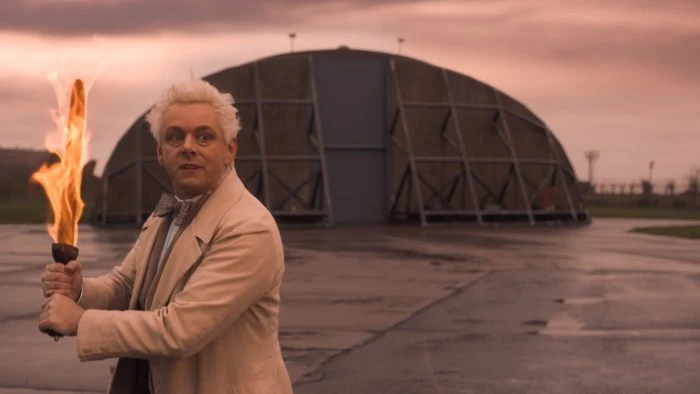
Michael Sheen plays Aziraphale, in a note-perfect take on the character. He absolutely embodies the terribly proper, jolly sporting, almost weaponised niceness and good manners of the angel, so much so that the programme's greatest punch-the-air moment is when he finally gets to drop an F-bomb. Crowley, on the other hand, is played by David Tennant, who portrays the demon with the louche confidence and swagger of an ageing rockstar. In fact, his performance and delivery is essentially the same his take on Doctor Who, if his Doctor had never regenerated, and had simply marched towards early middle age with gradually diminishing self-respect. (Except when he's briefly posing as a nanny, where he plays Missy.) Their friendship, always essential to the story but the beating heart of the adaptation, is brought to life with sublime chemistry between the two actors (so much so that Tennant has joked that he may have married the wrong co-star in Georgia Moffett). One of the more significant additions to the original narrative is an extended look at their budding friendship and their adventures through earthly history, which takes up much of the third episode and is an absolute highlight of the series.
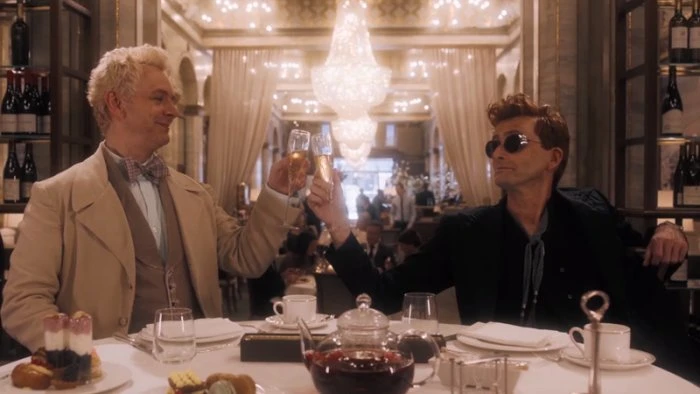
After six millennia performing of great acts of goodness and evil (and occasionally covering for each other), Aziraphale and Crowley have gone native and find they rather enjoy life on Earth, and are none too happy when they are instructed to begin preparations for the End of Days. They spend the following eleven years trying to keep the Antichrist on the straight and narrow, by influencing him equally in the ways of sainthood and sin, only to realise in the final fortnight of history that there's been an almighty cock-up and they have the wrong boy. The Son of Satan has not, in fact, been raised by the American ambassador to the UK thus placed to affect world events and bring in nuclear war, but has been living in a small English village running riot with his three best friends and his dog (technically a Hellbeast).

Sam Taylor Buck shoulders a lot of the climactic events as Adam Young, the reluctant Prince of Darkness. He moves easily from being an endearingly naughty little boy to being genuinely unnerving as his power manifests and he begins to bend the world to his will. Naturally, he comes good, but not before events are driven to the very edge of destruction by the coming of the Four Horsemen of the Apocalypse. Introduced gradually through the course of the series, these are distinctly modern iterations of the Four: Death, War, Famine and Pollution, biking their way to the end of the world. Brian Cox provides the haunting voice of Death, but it's Mireille Enos as the distressingly sexy War and Lourdes Fabreres as the alien and androgynous Pollution who have the most presence.

The story is framed by the narration of the Almighty (Frances McDormand, in a voiceover role). Any hardline religious types who managed to make it through the horror of a woman playing God were sent into apoplexy by a black Adam and Eve (even though this is about as scientifically feasible as you could make the idea of Adam and Eve). Then again, what's the point in making a comedy of errors about fundamental Christian mythology if you're not going to upset the Far Right? (Hilariously, a group of American Christian fundamentalists petitioned Netflix to remove the series. It is made and streamed by Amazon Prime.) As well as the Holiest of narrators guiding the story, helpful asides are provided by Agnes Nutter, a seventeenth century witch (Josie Lawrence, reprising her role from the radio serial), through her book of “Nice and Accurate Prophecies.”
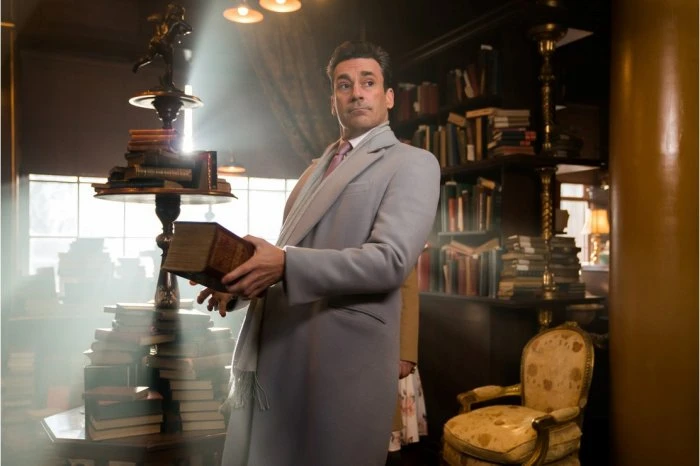
The prophecies guide Agnes's distant descendent Anathema Device as she attempts to avert the Apocalypse. It's always tricky judging the casting of a literary adaptation, since every reader will have their own vision of the characters, but Adria Arjona is too beautiful and too American to really fit as Anathema. She's charming in the role though, although she lacks chemistry with Jack Whitehall as her predestined lover, Newt Pulsifer, wannabe witch finder. Many of the characters are cast against expectation, but often to great effect. Daniel Mays is exceedingly fuddy-duddy as Adam's (non-Satanic) father, and Michael McKean is wonderful as the scruffy, Scottish Witchfinder Sergeant Shadwell (army of one). The various demons and angels are entertainingly cast, against gender and race expectation. The Archangel Michael is played by Doon Mackichan at her most officious, while John Hamm makes a gloriously Gabriel (a character almost absent from the book, but here made the leader of the Angelic Host). Beelzebub, Chief of Hell, is a putrid and bug-ridden cockney played by Anna Maxwell Martin, but her diabolical thunder is stolen by Ned Dennehy, who gives a waspish and gleefully evil performance as Crowley's nemesis, the unspeakable Hastur.
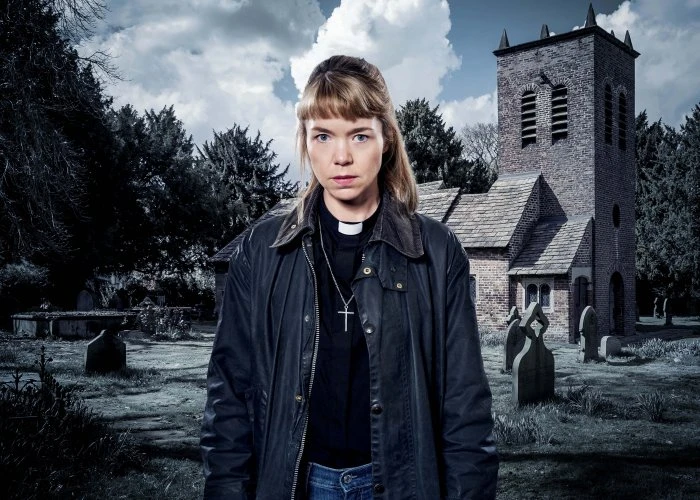
The series is occasionally paced rather oddly, perhaps owing to Gaiman's decision to incorporate extra material from his and Pratchett's planned sequel book (provisionally titled 668: The Neighbour of the Beast). Following the climactic events of the final episode, a lengthy epilogue follows the fates of Aziraphale and Crowley, in a pleasing but ultimately overlong sequence. While Gaiman has worked at updating some of the more outdated references and jokes, certain elements still noticeably date the material. (Adam's friend Pepper being the daughter of Woodstock-ish hippies was hard to credit in 1990, outright unfeasible in 2019.) During the most eventful parts, though, the story zips along, with a brilliantly judged balance of the exciting, the chilling and the absurd.

It's clear that everyone involved had a lot of fun creating this. It's full of cheeky references to some of Gaiman's favourite properties; about 90% are Doctor Who references (some of them wonderfully obscure), but the prominence of a full run of Richmal Crompton's Just William books is the best (the original idea for Good Omens being “William the Antichrist”). There are some delicious cameos for fans of BBC productions (the entire League of Gentlemen appear in the third episode). David Arnold provides a glorious score, but the lashings of Queen are what really make the soundtrack. Plus, there's a beautiful rendition of “A Nightingale Sang in Berkeley Square” by Tori Amos in the last episode (she is best mates with Gaiman, after all). And while no fan of a novel is ever going to be 100% satisfied with a screen adaptation, Gaiman's reworking of his masterful collaboration with the late, great Pratchett is about as close to dead right as we could hope.
Season 2
While Good Omens was only commissioned as a one-off, limited series, it seemed a fair bet that it would be renewed for a second. Of course, in the meantime Covid happened, staggering everything, and the second series wasn't commissioned until 2021, with production being delayed as well. However, on 28 July 2023 the second series finally arrived in one miraculous manifestation on Amazon Prime.
Fans of the original books have long been aware that Gaiman and Pratchett had plotted out a sequel, provisionally titled 668: The Neighbour of the Beast, which never got as far as a first draft, partly because Gaiman got all successful and moved to the United States. Although elements of the sequel made it into the first series (which is quite different from the original novel in many respects), it's surprising to learn that the second series features virtually nothing from it. Should a third series happen, the main storyline will be that of the unfinished sequel, while Good Omens 2 is an entirely new story, bridging the gap between the book and the book-that-never-was.
This perhaps explains why Good Omens 2 feels so distinctly different than the first series. It is far smaller in scope than the apocalyptic crisis of the first story, although no less ambitious in its ultimate consequences. Another big reason for the difference is that Gaiman co-wrote this series with John Finnemore, best known as writer and star of radio comedies Cabin Fever and John Finnemore's Souvenir Programme, who brings his own style and sensibilities to the script. Plus, the second series focuses even more closely on its central duo, the imperfect angel Aziraphale and the lapsed demon Crowley, than the first. This is hardly a surprise; the performance by and chemistry between real-life best mates Michael Sheen (Masters of Sex, Dirty Filthy Love, Fantabulosa!) and David Tennant (Doctor Who, Marvel's Jessica Jones, Around the World in 80 Days) had been a big part of the first series' success.
While the relationship between Aziraphale (Sheen) and Crowley (Tennant) can be read with romantic undertones in the book, this became overtones in the first series, and by the second there's absolutely no question that they're in love. Of course, neither angel nor demon seems willing to recognise this, carrying on with their strange, six thousand year friendship with even less oversight from Heaven and Hell than before. Their fairly untroubled lives are upended when the Archangel Gabriel turns up, naked but for a strategically-placed cardboard box, at the door of Crowley's Soho bookshop. (Shop being the best word available for a place from which a book has never, ever been sold.)
Gabriel, played with smug aplomb by Jon Hamm (Mad Men, 30 Rock, Unbreakable Kimmy Schmidt), was one of the most memorable characters from the first series, which is notable because he wasn't actually in the book, save for the briefest mention as an ominous off-page presence. In series two Gabriel is elevated to the third main character and the focal point of the plot. Missing his memories and identity, the previously arrogant and dangerous Gabriel is now a rather sweet and hapless fellow, taking joy in the simple delights of life much as Aziraphale and Crowley have learned to do. With both Heaven and Hell employing all their resources to find Gabriel, it's up to our two heroes to keep him hidden and find out just what's happened to his memory.

The first series upped the number of angels actively taking part in the story quite considerably from the book, and series two continues that trend. Returning from series one are Doon Mackichan (Smack the Pony, Plebs) as Michael, now senior archangel; Gloria Obianyo (Riches, The High Life) as the Archangel Uriel; and Sir Derek Jacobi (I, Claudius; Vicious) as the Metatron, the appointed Voice of God. Frances McDormand (State of Grace, Almost Famous) returns as the actual voice of God, albeit only for a brief role, rather than the ongoing narration of the first series (another factor in why this series feels so different). New to angelic roles are comedian Liz Carr as the Archangel Saraqael, and Quelin Sepulveda (The Man Who Fell to Earth) as the naïve Muriel.
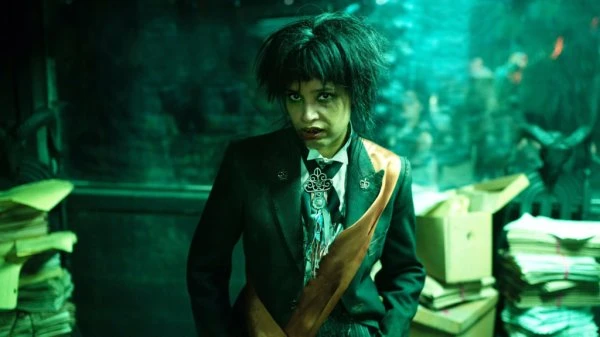
As for the demons, the only major face to return is Beelzebub, the Grand Duke of Hell. Except that they're not actually using their original face, having picked a rather gorgeous new one in the form of Shelley Conn (Bridgerton, Terra Nova), replacing series one's Anna Maxwell Martin. On the flip side, there are several actors returning from the first series in new roles, including Miranda Richardson (Blackadder II, Merlin) as Shax, Crowley's replacement as Hell's representative on Earth, and Reece Shearsmith (Psychoville, Inside No. 9) as upwardly-mobile demon Furfur. Both appeared in the first series, Richardson as the recurring character Madame Tracey, and Shearsmith in a brief role as some playwright named Bill.
Nina Sosanya (Last Tango in Halifax, Casanova) and Maggie Service (Red Dwarf, Hyperdrive) play the imaginatively named Nina and Maggie, two shop owners on the same street as Aziraphale's bookshop, whose tenuous romance forms a running plotline through the series. Both had previously appeared in the first series as diabolical sisters of the Chattering Order of St. Beryl. They get an awful lot more to do here, and it's certainly less distracting than having Richardson appear in a new and equally significant role.

Most of the more notable guest stars appear in the “minisodes,” flashback sequences by additional writers, which are woven throughout the main narrative (Which actually makes them episodes, in the classic sense, but there we are.) “A Companion to Owls” is by Finnemore, and feels the most essential to the series. Being Hell's representative on Earth, Crowley seems to have stood in for the Devil in most of his actual Biblical appearances, and here both he and Aziraphale are directly involved in the Book of Job. It's something of a family reunion, as Tennant stands alongside fellow Doctor Who and father-in-law Peter Davison as Job, and playing Job's son, his own son Ty Tennant (House of the Dragon). Joining them is comedian Andi Osho (Death in Paradise, Lights Out) as Job's wife Sitis, actually getting a name here, rather than in the Bible. The events of the Book of Job are presented exactly as appallingly as they truly are, with Finnemore being bang on as he dismisses the entire debacle as nothing more than God's attempt to win a bet with Satan. It's also a turning point for Aziraphale's relationship with Heaven, as he finally accepts that obeying God and doing the right thing are not necessarily the same.
Within the third episode is “The Resurrectionists” by Cat Clarke (Ten Percent), another educational adventure for Aziraphale as he and Crowley get caught up with a young bodysnatcher in nineteenth century Edinburgh. Abigail Lawrie (Tin Star, The Casual Vacancy) gives a fine performance as Elspeth, forced to dig up bodies to sell to surgeons to make money to live, while Sean Biggerstaff, best known to fans of the Harry Potter films, has some gravitas as the surgeon Mr. Dalrymple. The final minisode, “Nazi Zombie Flesheaters,” is woven through episode four and is sensible as it sounds. Writer, actor and magician Andrew Nyman (Dead Set) lends his skills as one half of the creative team, and was doubtless responsible for the plotline of Aziraphale learning sleight of hand. The second half is Jeremy Dyson of The League of Gentlemen, working together with Reece Shearsmith once again, and bringing back fellow Leaguers Mark Gatiss and Steve Pemberton as the nefarious Nazis from the first series. It's a bit of fluff, but entertaining.
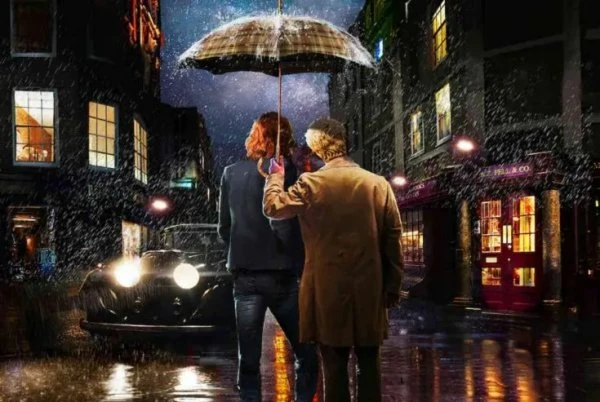
While it doesn't reach the heights of the first series, Good Omens 2 is a welcome return for our favourite angel/demon will-they/won't-they duo. While a smaller story, it expands on their long, long lives and the complexities of the mythic universe in which they live. While it's a little indulgent, it's no less moving for it, leading towards a triumphant and romantic ending... although perhaps not for who we were expecting. While it's strange to have a version of Good Omens in which Pratchett's input has been negligible, Gaiman and Finnemore work well together and I'd be keen to see them doing so again. Pratchett's presence is still felt though, through some little references that serve to remind us that he is part of this creation. It's also him we can blame for having Buddy Holly's classic “Everyday” being stuck in our heads for weeks after watching the series. While it's hard to escape the fact that is a filler series tiding us over for the big events of the finale, it's still a wonderful way to spend six hours.
Season 2 review originally published on 14 August 2023. Written by Daniel Tessier for Television Heaven.
Seen this show? How do you rate it?
Seen this show? How do you rate it?
Published on October 8th, 2019. Written by Daniel Tessier for Television Heaven.



